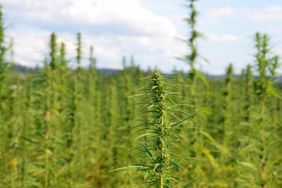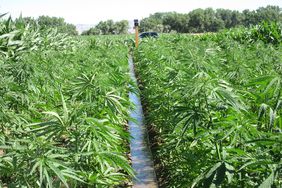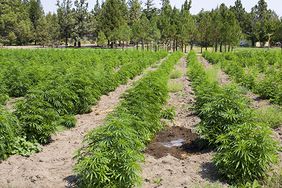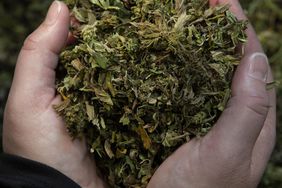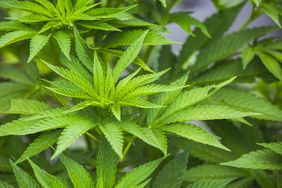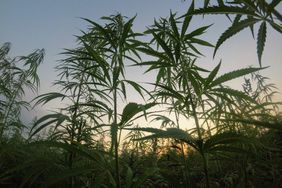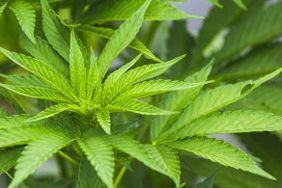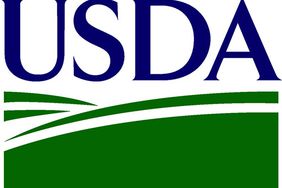:max_bytes(150000):strip_icc()/iStock-904560152-2000-54c52b6463a842e28fb87a6de4fe6e36.jpg)
Not so fast on the thinking that you'll never grow hemp as a commercial product on your farm. The new farm bill is cracking the door open to that possibility a little wider.
We're not talking about marijuana grown for its psychoactive purposes. But a milder version of that plant, called CBD, is hemp that is deregulated in the new farm bill. Products made from it, numbering in the thousands, include nutritional additives, cosmetics, construction materials, pet foods, pest inhibitors, and many others.
Use of hemp for such purposes may exceed the more potent psychoactive cannabis in the next few years, experts say. And it could put hemp production on more farms where state legislators let it happen.
We recently interviewed two executives, Evan Skandalis (farm manager) and Dylan Summers (regional director), of Lazarus Naturals, a company in the Pacific Northwest that produces and markets CBD products now. CBD promotes restful sleep, supports normal cartilage and joint function, relieves occasional nausea, enhances relaxation, and more, says the company's website.
SF: What's the background of your company in this business?
Summers: The advent of Lazarus Naturals was in part a reaction to the steep prices of CBD products in the marketplace at the time. We have always been optimistic about the potential of hemp and CBD products. We had discussions with many people interested in cannabis about the various ways CBD was particularly useful in their everyday lives. Because of the positive responses to CBD and the fact that we knew how to bring affordable products to market, it was a natural decision to start doing business.
SF: What is the current national landscape for hemp production?
Summers: Currently, the ease in which a business can operate completely depends on which state they are conducting business. The Agricultural Act of 2014 introduced the capacity for states to cultivate hemp but since then not all states have implemented pilot programs. If you are in Kentucky, Colorado, or Oregon you operate with favorable laws, but in places like Idaho you have no guidance beyond no differentiation between marijuana and hemp. Things are about to change, however, with the 2018 farm bill as hemp assumes its rightful place as a legal and legitimate agricultural commodity. This should open up opportunities for a lot of folks, which is very exciting for hemp and for the rural economy in whole.
SF: What does the new farm bill actually do on this front?
Summers: The 2018 farm bill effectively defines hemp resolutely separate of marijuana as an agricultural product. Hemp will be removed from the Controlled Substances Act and away from the purview of the Drug Enforcement Agency. This means the legality of cultivation, processing, and interstate commerce will be significantly opened at the federal level. It is important to note that it will not preempt state law, however. It will be up to the states to choose to regulate hemp production and processing if they are not yet already. It is no doubt an exciting time. There will be no more confusion of the illicitness of hemp and its products and no more scares of excessive, federal enforcement.
SF: What are the economics of the new business opportunities?
Summers: There will no doubt be an abundance of opportunity for more and more businesses to enter the marketplace. More open competition often means a more prosperous market and higher quality products. At first, there will no doubt be a spike as many entrepreneurs and investors will look to have some skin in the game. If prior industry booms are any indication, the stimulus should be a net good as prices will go down and availability of materials will steady out. Most importantly, hemp will be a great new crop for the American farmer. We have yet to grasp all the uses and applications of hemp. Even though this trend is all so new, there should be ample demand for the crop for years to come.
SF: Where will we see the new opportunity for farmers?
Skandalis: I sit on the membership board of the U.S. Hemp Farmers Association. This group is working toward pursuing crop insurance for the industry, as well as lobbying state legislatures to create policy frameworks for states that may have little experience with hemp regulations. There is tremendous interest in hemp from commodity crop farmers in the Midwest and Southern regions. The fact that hemp needs relatively little nutrient input or water, and can be harvested using existing infrastructure, means that this crop will continue to expand production, especially because it has so many different applications.
SF: What should interested farmers do?
Skandalis: Start to network with your local Extension office. They are a great source of information when it comes to the agronomic needs of the hemp plant. With the passage of the 2018 Farm Bill, I expect that additional grants, loans, and credit will open up to the hemp farming industry that were previously not available because of federal scheduling.
